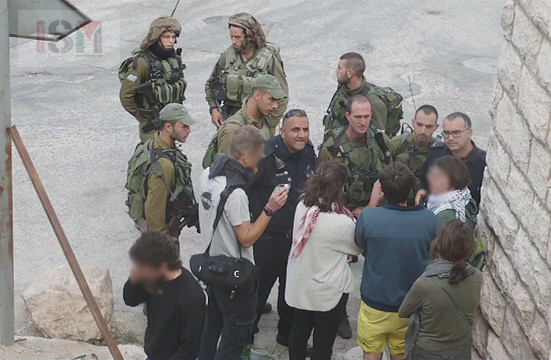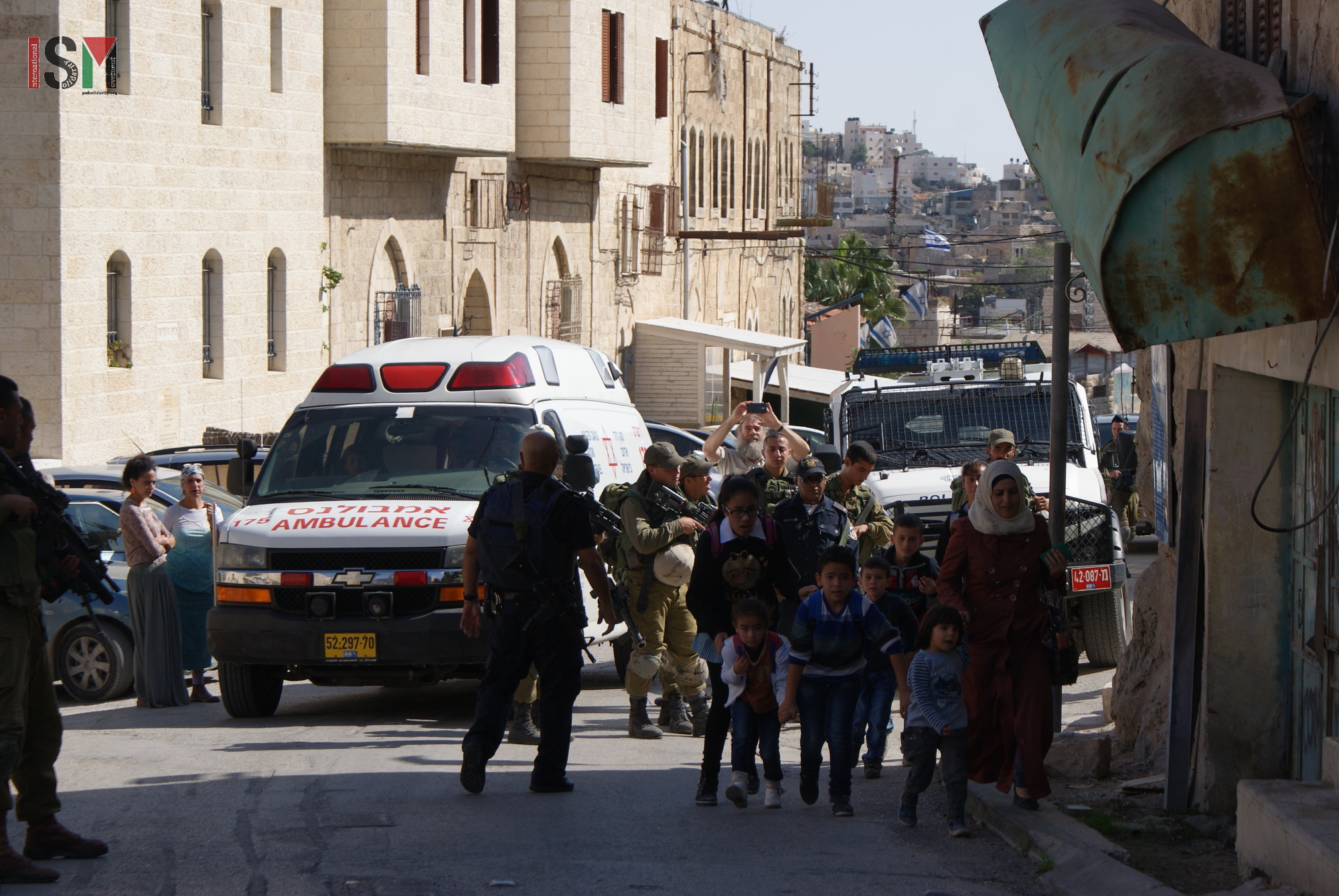Category: Features
-
Palestinians held hostage in their own homes by Israeli forces in al-Khalil (Hebron)
7th November 2015 | International Solidarity Movement, al-Khalil team | Hebron, occupied Palestine On November 7th 2015, Israeli forces violently took over several homes of Palestinian families in occupied al-Khalil (Hebron), trapping the families inside their own homes. Large parts of the city have been declared a ‘closed military zone’, preventing Palestinians from moving, while settlers…
-
International human rights defenders arrested and evicted while “Hebron is becoming ghettoized”
4th November 2015 | International Solidarity Movement, al-Khalil team | Hebron, occupied Palestine Two international human rights defenders were arrested in Hebron (al-Khalil) yesterday morning, November 3rd, while six others were ordered to leave an apartment in the H2 neighbourhood of Tel Rumeida by threat of arrest. The German and American nationals were arrested at…
-
Israeli forces redouble brutal efforts to curtail and isolate Palestinians’ daily lives
1st November 2015 | International Solidarity Movement, al-Khalil team | Hebron, occupied Palestine On Sunday, 1st November 2015, Israeli forces prevented movement of Palestinians in various areas in al-Khalil (Hebron) that have previously been declared a ‘closed military zone’. Violence against school-children and teachers has seen a sharp increase. International observers documenting and reporting on…



